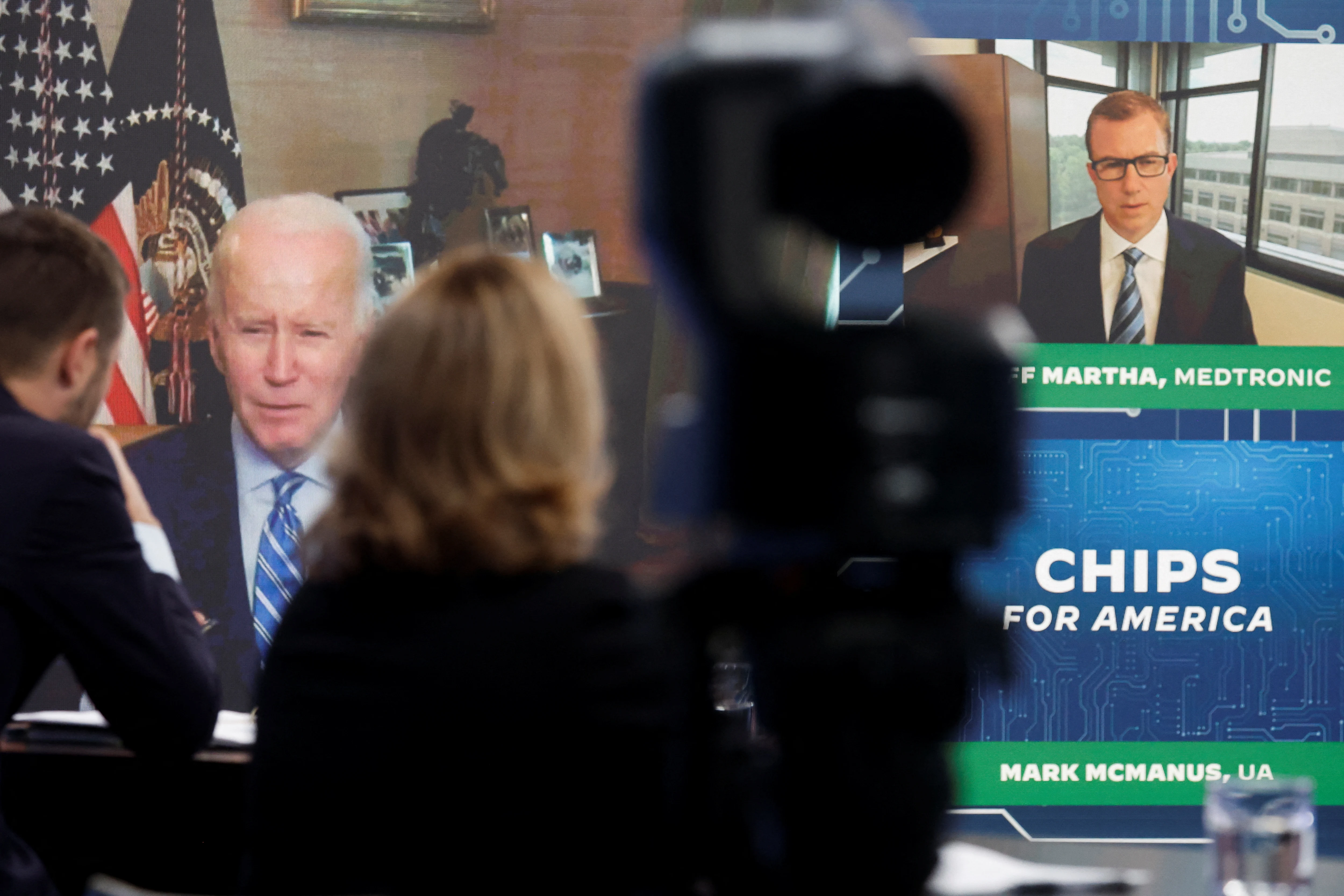Image: Reuters Berita 24 English - A bill to give $52.7 billion in subsidies for American semiconductor manufacture and research will be si...
 |
| Image: Reuters |
Berita 24 English - A bill to give $52.7 billion in subsidies for American semiconductor manufacture and research will be signed by President Joe Biden on Tuesday, bolstering efforts to make the United States more competitive with China's scientific and technology initiatives.
Even though it's unclear when the U.S. Commerce Department will establish regulations for evaluating grant awards and how long it will take to fund projects, the White House is praising the efforts that chip makers are making.
The signing, which is scheduled to begin at 10 a.m. EDT, will be attended by cabinet members, leaders of the auto industry, and union leaders, including United Auto Workers President Ray Curry, according to the White House.
Additionally present will be politicians, the mayors of Detroit, Cleveland, and Salt Lake City, as well as the governors of Pennsylvania and Illinois.
According to the White House, fresh semiconductor investments were encouraged by the bill's passing. It was mentioned that Qualcomm has committed to spending $7.4 billion on purchases from GlobalFoundries' New York factory as of Monday, bringing its total commitment to that point to $7.4 billion.
The U.S. market share will increase from 2% to 10% as a result of Micron's announcement of a $40 billion investment in memory chip manufacture, according to the White House.
A continuous shortage that has impacted everything from vehicles, guns, washing machines, and video games is being addressed by the legislation. As the shortfall continues to affect automakers, thousands of automobiles and trucks are still stalled in southeast Michigan while waiting for chips.
The bill also provides a 25 percent investment tax credit for chip facilities, which is worth an estimated $24 billion, marking a rare significant entry into American industrial policy.
The law grants $200 billion over ten years to advance American scientific research so that it can compete more effectively with China. To pay for those investments, Congress would still need to adopt separate appropriations legislation.
China had opposed the semiconductor bill through lobbying. China "firmly rejected" it, according to the Chinese Embassy in Washington, and compared it to a "Cold War mentality."
Many American legislators had stated that they typically would not approve substantial subsidies for private enterprises but pointed out that China and the European Union had been giving their chip companies billions in incentives. They also mentioned concerns to national security and significant issues with the global supply chain that have impeded global industry.






No comments